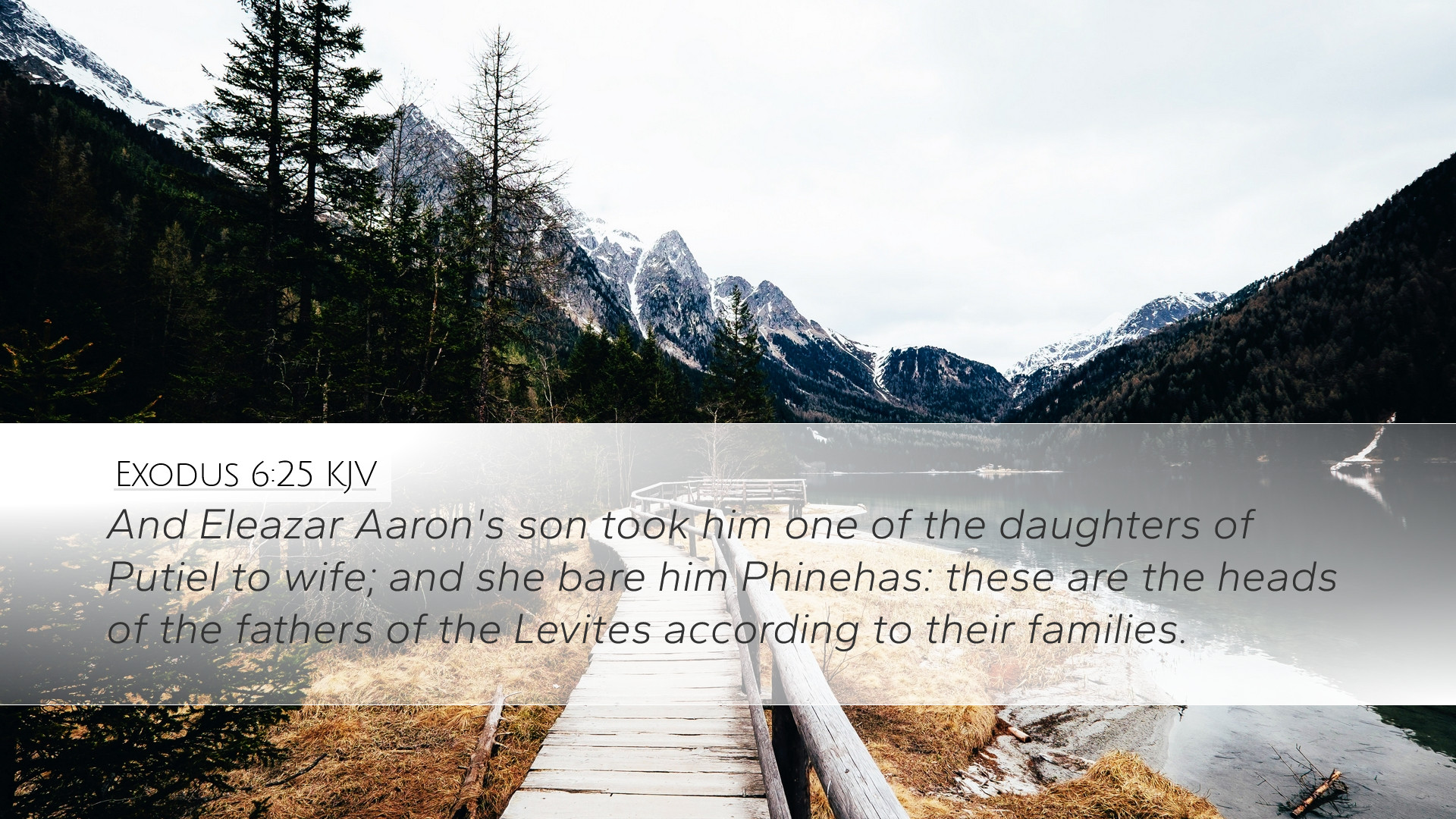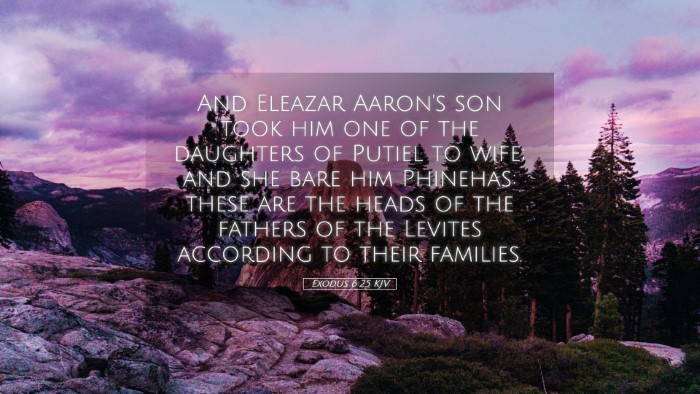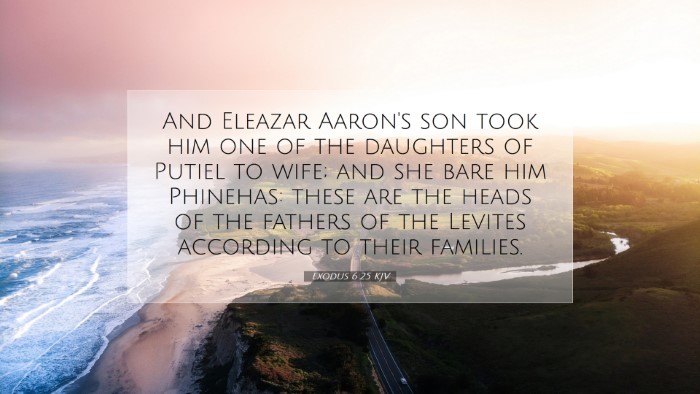Exodus 6:25 Commentary
Verse:
Exodus 6:25 (KJV): "And Eleazar, Aaron's son, took him one of the daughters of Putiel to wife; and she bare him Phinehas: these are the heads of the fathers of the Levites according to their families."
Introduction
The genealogical significance found in Exodus 6:25 is a compact verse with profound implications for understanding the priestly lineage and the continuity of the Levitical priesthood. This commentary synthesizes insights from Matthew Henry, Albert Barnes, and Adam Clarke, examining the verse's theological, historical, and practical dimensions.
Historical Context
This verse appears in a broader narrative concerning Moses and Aaron, where God reaffirms His covenant with Israel. The context signifies God's commitment to Israel and the establishment of a priestly line through Aaron's descendants.
Henry notes that this is part of the genealogy, which has been preserved to validate the priestly authority and function within Israel's worship. It places Aaron's lineage in a historical framework, affirming their role during the Exodus.
Key Figures
- Eleazar: Aaron's son, who assumes a critical role in the Levitical priesthood after Aaron.
- Daughter of Putiel: Her identity is not extensively documented, but marrying into a priestly lineage denotes her importance in the continuity of the priesthood.
- Phinehas: The grandson of Aaron, who is noted for his zealousness for God, depicted in Numbers 25, showcasing the moral and spiritual legacy of his family.
Theological Implications
This verse highlights the importance of family and heritage in the context of God's redemptive plan. Barnes emphasizes how genealogies in Scripture serve as reminders of God's faithful promises throughout generations.
Furthermore, Clarke points out that the union of Eleazar with the daughter of Putiel reflects a blending of families that further solidifies the priestly structure. It reveals God's providence in orchestrating events that keep His covenant alive.
Covenantal Significance
The mention of the heads of the Levite families underscores the covenantal relationship God has with the Levites, who were set apart for service. The verse serves as a reminder that God structures His people in a way that promotes communal worship and obedience.
Henry notes that this structure is not merely biological but also spiritual, stating that it illustrates how leadership in worship must come from a lineage dedicated to God. The priesthood is not merely a role but a sacred calling grounded in family heritage.
Application for Contemporary Readers
For pastors and church leaders, Exodus 6:25 serves as a reminder of the importance of spiritual legacy and the transmission of faith across generations. It encourages the understanding that spiritual leadership is often linked to familial and community relationships.
Moreover, students of the Bible are prompted to consider the ways in which God uses historical context to accomplish His purposes. This verse can serve as a basis for discussions on holiness and the role of believers in nurturing a faith that honors God within family structures.
Conclusion
Exodus 6:25 encapsulates much within its brief statement. From genealogical connections to covenantal faithfulness, it bridges the Old Testament narrative and contemporary faith practice. By reflecting on Eleazar's marriage and the significance of Phinehas, we are reminded of the divine providence and the importance of our commitments to God, family, and community.


